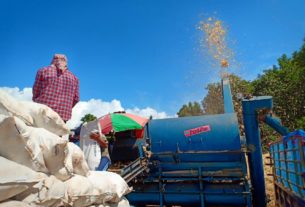House and land prices close to Tavoy in southern Burma where the building of a multi-billion dollar port project will gain momentum have increased up to ten-fold in recent months.
A resident of Tavoy in Tenasserim division, which lies on the isthmus shared by Burma and Thailand, said that most of the new property buyers were businesspeople from Rangoon and Mandalay who could afford the 500 million kyat ($US500,000) that some homeowners were now asking.
Around 30 properties in Tavoy town centre, particularly around Tavoy market and on the main thoroughfares such as Arzarni Road, have so far been sold at the inflated prices. Houses in the area had gone for 50 to 60 million kyat ($US50 to 60) prior to the signing of the port deal.
The buyers are likely looking to the future when the $US8 billion deep-sea port opens up major business opportunities in the area. Led by Bangkok-based engineering giant Italian-Thai, it is the largest foreign investment in Burma, and at 250 square kilometres will create by far the single biggest industrial zone the country has seen
Job opportunities are thus likely to open up on a massive scale, with workers needed to operate the factories, refineries and coal-fired power plant that comprise the project.
The Thai government has set the finish date for 2015, by which time it will be able to accommodate giant ships with cargo destined for countries the length and breadth of Southeast Asia.
Completion of the port would allow Thai exports to bypass the congested Straits of Malacca, south of Singapore. Key to the project is construction of a 160-kilometre highway and rail link between Kanchanburi and Tavoy. The route is a major component of the Southern Economic Corridor, which will link Tavoy with Ho Chi Minh City in Vietnam.
Burmese policy-makers, including apparently junta chief Than Shwe, see the project as a possible small-scale version of the special economic zones (SEZ) that have been such successes in China and Vietnam, and the lure is apparently too much for Burma’s business elite to resist.
Tavoy locals however may not see the rosy side of the venture, with heavy industry and the construction of chemical plants that would be resisted in Thailand threatening to increase levels of pollution.

